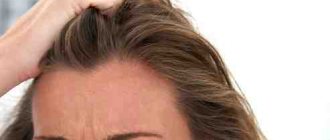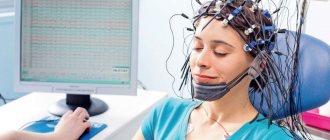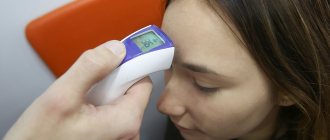Reasons why your head hurts after sleep
Feeling unwell after a night's rest affects not only a person's mood, but also the efficiency of work. Depressive feelings, increased irritability, and unstable emotional state affect relationships with others and the correctness of professional tasks performed. Along with relatively simple, non-pathological causes of pain, which can be corrected by lifestyle changes, the appearance of an uncomfortable symptom can be influenced by serious illnesses that require urgent medical attention.
Night grinding of teeth
"If you wake up with a headache, it's likely due to excessive jaw clenching or teeth grinding while you sleep," says Katie Gruver, a massage therapist in Santa Monica. Research shows that self-massage can successfully relieve these symptoms. Make it a habit before going to bed and immediately after waking up to combine gentle massaging of the attachment areas of the lower jaw with the application of a warm, damp cloth to the same areas. It would also be a good idea to schedule a visit to the dentist to have a night guard made to relieve teeth grinding.
Factors not associated with head diseases
External stimuli that can affect a person’s general well-being are listed in the following list:
- Insufficient rest period, which leaves less than seven hours.
- Oversleeping.
- Drinking alcohol before going on vacation or stimulating energy drinks, including coffee.
- Staying in front of a TV or computer screen for a long time, exposure to blue lighting, flickering, irritating visual receptors, why do you get a headache after sleep?
- Uncomfortable posture leading to prolonged muscle tension.
- Overheating or prolonged exposure to the sun.
- Depressive state.
A person may simply systematically not get enough sleep due to his own or someone else’s snoring or other external noise.
Reading e-books before bed
According to a new Harvard study, people who read books on an iPad or similar device before bed are more likely to have difficulty waking up refreshed and refreshed compared to those who prefer printed literature. Cause? According to sleep medicine specialist and author of Sleep Well Every Night, Feel Great Every Day, blue light from e-readers and tablets suppresses the release of the hormone melatonin, which controls sleep and wake cycles. In other words, when melatonin levels are below a certain level, your sleep is not nearly as sound as it seems. Rosenberg recommends turning off all electronic devices (computers, smartphones, tablets, books) 1.5 hours before bedtime. In addition, be sure to take your mobile phone to another room at night. Dr. Sylvia Morris of Atlanta says that even if the device is set to airplane mode, it still emits enough light to disrupt sleep.
Factors associated with internal pathologies
Pain is not a separate disease, but the first sign of the development of any disorders occurring in the body. If the abnormal condition manifests itself sporadically, and a lot of time passes between attacks, it is not advisable to worry about the presence of a complex disease. If discomfort occurs systematically and is complemented by other pathological signs, it is necessary to find out why the head hurts after sleep and what is the primary source of this condition.
Frequent factors causing discomfort and heaviness in the cranium are:
- spasms of the muscles located in the upper shoulder girdle or neck;
- atherosclerotic disorders, increased internal pressure, stroke;
- head injury as a result of mechanical impact or surgery;
- thrombosis of vascular pathways, resulting in a decrease in the intensity of blood supply and nutrition to brain tissue;
- general intoxication with chemical or biological toxic elements;
- tumor formations in the cranium or cervical region.
Pathologically growing objects in brain tissue are capable of compressing parts of the organ, pinching vascular channels and nerves, which leads to pain.
Incorrectly selected pillow
Yes, a huge soft pillow may seem like a luxury, but at the same time it is quite capable of causing serious pain. “Sleeping with your head elevated disrupts the line of your spine. "It's like walking around for eight hours during the day with your head down," explains Dr. Shawn Stevenson, author of Sleep Smarter: 21 Sleep Strategies for Better Body, Health, and Success. The optimal pillow should be soft, but at the same time have an elastic foam filler like Intelli-Gel technology.
Diagnosis of head diseases
Symptomatic manifestations are often not specific and may indicate the development of different diseases that need to be differentiated. At the initial stage, the examination is carried out by a therapist or neurologist, who, if necessary, will involve specialists from other areas in the research manipulations: an endocrinologist, a neurosurgeon, a somnologist, an oncologist. If pain occurs, a standard set of diagnostic procedures is prescribed, which includes:
- laboratory analytical screenings;
- electroencephalographic studies;
- radiography;
- ultrasound scanning of the vessels of the neck and head;
- computed tomography screening;
- magnetic resonance examination.
The best way to detect diseases of various etiologies is MRI, as it allows you to visualize tissues of varying densities, pathological areas with microscopic disorders that cause pain. Screening is carried out using a special device that generates a high-frequency magnetic field. When under its influence, dissonance occurs in the nuclei of biological fibers, which is recorded by equipment. The signature is converted into clear black and white images that can not only be zoomed in, but also composited into a 3D model.
The harm of waking up early
Early awakening as a disorder is usually accompanied by the following disorders:
- Chronic fatigue.
- Distracted attention.
- Irritability.
Painful symptoms appear in the afternoon and disrupt the person’s normal functioning. Against the background of a sleep disorder, psychological, psychosomatic and emotional disorders may develop.
How to overcome early awakening?
The first step towards overcoming a sleep disorder is discovering its cause. Do not rush to run to the pharmacy for sleeping pills, consult a doctor. Correct treatment requires diagnosis. The first specialist you contact should be a psychotherapist or psychiatrist. He will determine the causes of the disease and prescribe treatment.
How to get rid of pain?
When the original source of heaviness and discomfort in the head is discovered, specific therapy is prescribed, aimed not only at relieving uncomfortable symptoms, but also at getting rid of the source of the anomaly. Directed drug therapy is most often used. If hidden inflammatory processes or internal infection are detected, antibacterial drugs and anti-inflammatory drugs are used.
Vascular and muscle spasms are relieved with antispasmodics. To relieve pain in the head, broad-spectrum analgesics are used. If discomfort occurs sporadically, you can use your usual painkillers. Severe attacks similar to migraines can be relieved only with targeted neurological drugs, which can only be prescribed by the treating specialist.
Other diseases
The course of therapy depends on the diagnosis. If osteochondrosis is excluded, a study is carried out for the presence of other diseases.
Injuries and hernias of the skeleton of our body require surgery if the back hurts in the morning. In medicine, they are performed in a minimally invasive manner through punctures using radio waves, lasers and other techniques without external incisions. Pinched nerves are released from compression, but are not damaged or affected. Operation using radio waves helps eliminate the hernia by destroying it and removing decay products.
Problems with urology are treated with medication. The basis of therapy is the use of antibacterial medications. Surgery for kidney problems is performed for special indications.
Metabolic disorders require tests to determine the state of the hormonal system. If abnormalities are detected, the endocrinologist prescribes a course of hormonal therapy, consisting of hormone injections or oral administration.
For muscle swelling, medications are prescribed to relieve inflammation and tension in muscle tissue. Therapeutic relaxing massages are indicated.
If pathology of other organs is diagnosed, treatment is determined by the doctor based on the diagnosis.
Where is the head examination performed?
Directed diagnostics are carried out in specialized institutions that have tomography facilities. You can find a multifunctional research center on the website of the unified recording service, the telephone number of which is indicated at the top of the page. The portal contains data from all tomography clinics located in each district of the city. Study the information, mark the best offers, make an appointment and receive a special discount from the service in the amount of 1000 rubles for the selected type of screening.
Conditions that may affect sleep and wakefulness
Anemia
Iron deficiency anemia can make people feel exhausted and tired during the day. People may also feel extremely tired after waking up. Other symptoms of anemia include:
- irregular heartbeat
- cold hands and feet
- dizziness
- pale or yellow skin
- shortness of breath
- weakness
Anxiety
Anxiety can affect a person's ability to fall asleep at night. Feeling anxious throughout the day can also cause daytime fatigue.
Other symptoms of anxiety include:
- gastrointestinal problems
- cardiopalmus
- rapid breathing
- sweating
- shiver
- difficulty concentrating
- feeling nervous, anxious, or afraid
- panic attack
Chronic fatigue syndrome
Chronic fatigue syndrome (CFS) is a condition characterized by extreme fatigue that cannot be attributed to an underlying medical condition. Another name for CFS is myalgic encephalomyelitis.
Other symptoms of CFS include:
- headache
- lack of concentration
- memory loss
- muscle or joint pain
- a sore throat
Depression
Depression is a type of mood disorder characterized by persistent feelings of sadness and loss of interest in things that a person once enjoyed. People suffering from depression usually feel tired or lack energy. These symptoms may contribute to morning fatigue.
Other symptoms of depression include:
- difficulty concentrating or making decisions
- slow thinking, speech, or movement
- feelings of anger, anxiety, frustration and hopelessness
- thoughts of death, suicide, or suicide attempts
- changes in appetite and weight
- body pain
Diabetes
Diabetes is a chronic condition in which a person's blood sugar levels become too high. There are two main types of diabetes: type 1 and type 2. Both types can cause you to feel overly tired. They can also cause the following symptoms:
- blurred vision
- slow healing wounds
- severe hunger
- unexplained weight loss
- increased thirst
- frequent urination, especially at night
- frequent infection
Underactive thyroid gland
The thyroid gland is a small gland that is located inside the neck. One of its main functions is the production of hormones that regulate metabolic processes within the body. An underactive thyroid gland produces too little of the hormone thyroxine. This may lead to the following symptoms such as:
- excessive fatigue
- depression
- memory problems
- slow heartbeat
- pain in muscles and joints
- sensitivity to cold temperatures
- dry skin
- hair thinning
- menstrual irregularities
- weight gain











